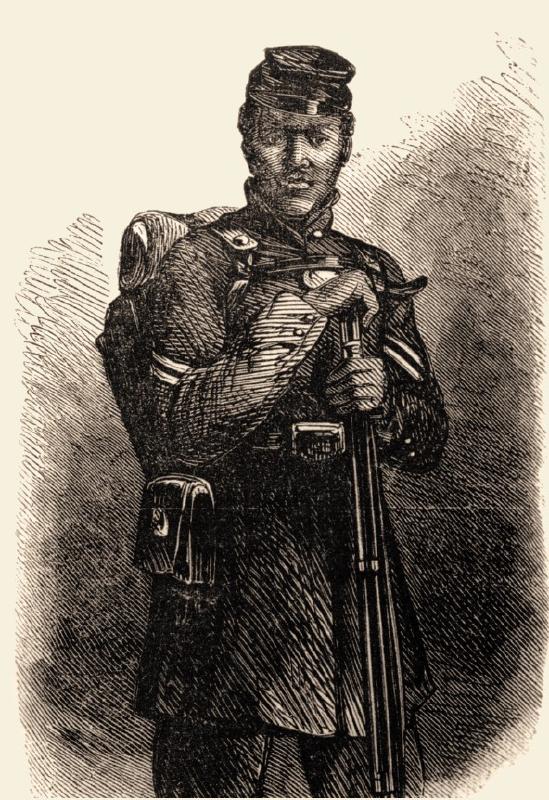
On February 20, 1861, the night before arriving in Harrisburg, Pennsylvania, then President-elect Abraham Lincoln received information regarding a plot to assassinate him during his trip from his home in Illinois to his inauguration ceremony in Washington, D.C. At the Jones House, Lincoln met carriage driver Jacob T. Compton, who made his escape from Harrisburg possible.
On a journey from his childhood home in Illinois to his presidential inauguration in Washington, D.C., Abraham Lincoln and his aides became aware of a plot to assassinate Lincoln as his party passed through Baltimore. Despite protests from his aides, Lincoln decided to go ahead with his planned events for Washington’s birthday in Harrisburg on February 22. Lincoln's aides had planned for him to go to Philadelphia from Harrisburg, and then to D.C. to avoid Baltimore entirely. Lincoln would only agree to this plan if he could honor his commitment to Pennsylvania Governor Andrew Curtin to attend events in Harrisburg first. Lincoln’s first stop was the Jones House, a hotel overlooking Market Square, where he gave a speech to the residents of Harrisburg. He then addressed the state legislature at the Capitol Building, and returned to the Jones House. Originally, Lincoln was meant to spend the night at the hotel, but Governor Curtin, Chicago police detective Allan Pinkerton, and Pennsylvania Senator Simon Cameron devised a plan allowing the President-Elect to make an earlier exit.
Cameron called on his personal carriage driver, Jacob Compton, to help. Compton would drive one of the two carriages that secretly transported Lincoln and his party to the Pennsylvania Railroad Station where they would then board a train for Philadelphia. Jacob Compton arrived at the Jones House, later known as the Commonwealth Hotel, to collect Lincoln for the carriage ride. He drove Lincoln and Colonel Ellsworth, another man traveling with Lincoln, from the Jones House to the Pennsylvania Railroad Station, and then went back to the Jones House to take Mary Todd Lincoln and one of the Lincoln boys to the station on the same night. It was through Jacob Compton’s work as a coachman that the Lincolns were able to successfully escape Harrisburg.
Jacob Tilford Compton, also listed as Jacob T. Cumpton in a few of his obituaries and documents, was born on August 3, 1836, in Williamsport, Maryland. Compton faced hardship after both of his parents died of cholera within days of each other in 1864. He left Williamsport to escape criminal charges for helping two formerly enslaved men, George and John Butler, escape to the North through the Underground Railroad. Compton escaped to Harrisburg, where he would spend the rest of his life. He worked several odd jobs for about a year after arriving in the capital, until Simon Cameron hired him as his coachman.
Aside from assisting in Lincoln’s rescue, Compton was a vital member of Harrisburg’s community, particularly that of Harrisburg’s African American population. Jacob Compton was extensively involved in the Bethel African Methodist Episcopal (AME) Church, a congregation that assisted new voters in registration after the passing of the 15th Amendment in 1871. Compton was a musician who assisted with music programs at Bethel and went on to star in Excelsior, Harrisburg’s first all-Black musical group that became quite popular. Compton was also a prominent member of his local chapter of Freemasons, a secretive group that focused on civic service. His obituaries state that he was friendly and well-loved by many throughout Harrisburg. Unsurprisingly, however, Compton is still most well-known for spiriting the Lincolns out of Harrisburg. In fact, by safely transporting Abraham Lincoln to the railroad station bound for Philadelphia, Compton helped Lincoln to completely avoid the Baltimore area and anyone there who may have attempted to harm him.
Through making his escape to Harrisburg, Compton enriched the lives of many throughout his community in Harrisburg’s Old Eighth Ward and made Lincoln’s rescue from assassination in Baltimore possible. His musical work continued after the escape, as he went on to direct the choirs of the A.M.E. and A.M.E. Zion churches. He was also involved with Sunday school music lessons. Compton served his country during the Civil War as a Sergeant of Company D of the 24th United States Colored Infantry (USCT). As a Union soldier who was also a person of color, Compton likely faced hardship and discrimination throughout his service. His dedication to the Union side of the American Civil War was another way in which he was able to fight for the rights of other people of color during his time.
Jacob Compton passed away in September of 1905, at age 69. He died at his home in Harrisburg and, according to his obituary in the Harrisburg Telegraph, he was one of the city’s oldest Black residents of the time. He was buried in block F of the Lincoln Cemetery, a historically African American cemetery in Harrisburg. Numerous obituaries hailed Compton as a hero who drove Lincoln’s carriage during his escape, as well as recognized his work with musical groups, church communities, the Freemasons, and the United States Colored Troops. Compton’s commitment to civic service, civil rights, and serving his community and country makes him an important historical figure to remember. The Jones House itself serves as a living reminder of Compton’s bravery and his assistance of the Lincoln family, signifying the beginning of the escape. While a marker at the site of the Jones House memorializes Lincoln’s flight, it does not mention Compton’s role in transporting the President-Elect. Compton's various accomplishments in a wide array of areas are evidence of both his resilience and his selfless service to Harrisburg, traits that all should remember when memorializing the Old Eighth Ward.
A full list of the resources used in this story can be accessed here.
Related Stories
Welcome Home USCT
A Gathering at the Crossroads
Images

